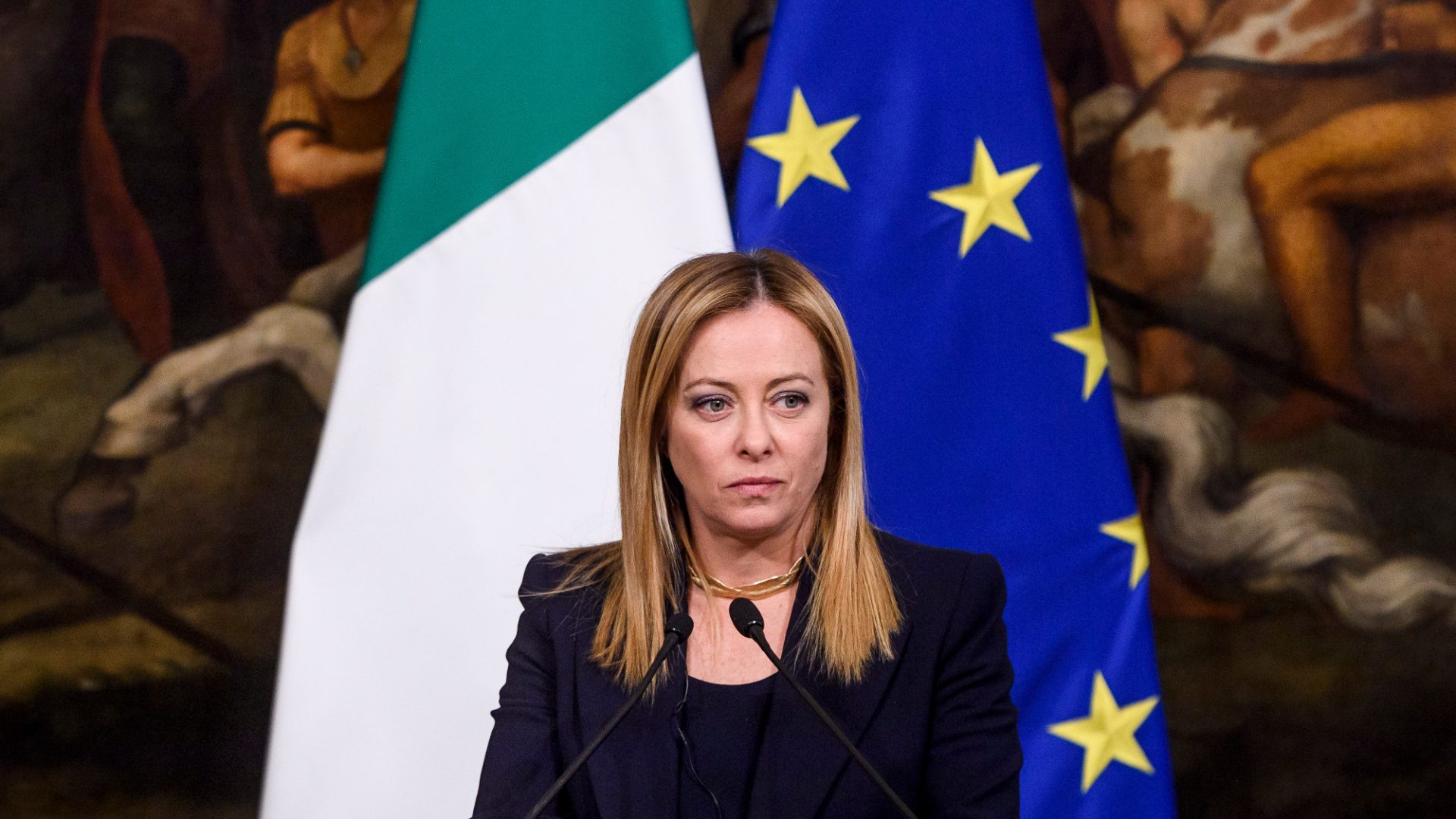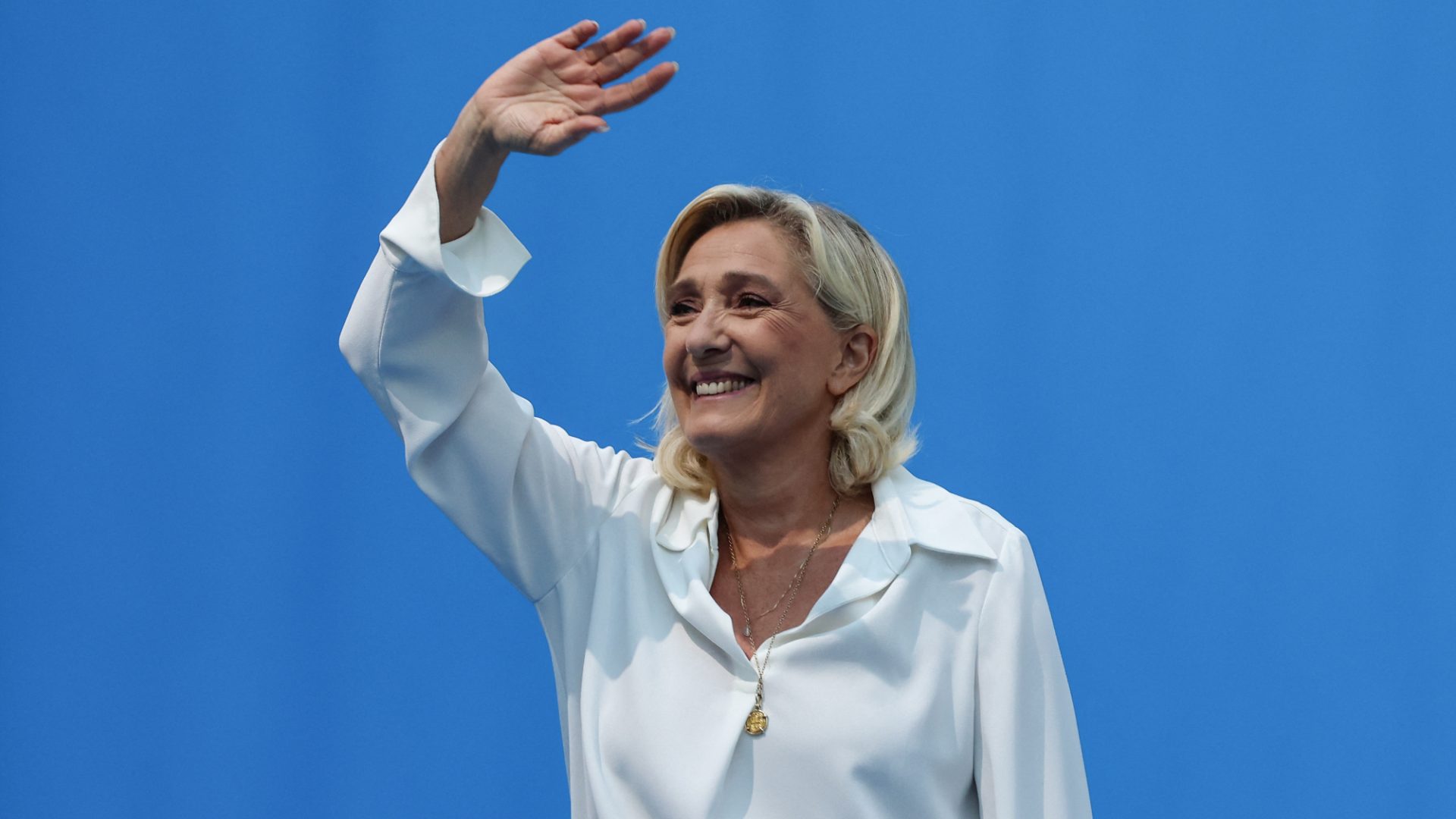In two successive months, two sets of elections in Europe will provide two contradictory outcomes.
The UK, that offshore island that Europeans once tried to hug close, is set to reverse a decade and a half of clownism by electing a majority centre-left government on July 4. The expectations of Keir Starmer and Labour are not particularly high in Paris and Berlin, but the fact that Britain may gradually regain a reputation for sensible politics will come as an enormous relief.
Even more striking – and painful for British pro-Europeans – is that many EU member states are heading down the opposite path.
The elections for the European Parliament, to be held between June 6 and 9, will determine the makeup of the legislature and the commission. Everything is up for grabs, and the various parties and groupings of the far right are set to make major gains.
This is the first time in 45 years that the Brits have not had the right to send representatives to Brussels and Strasbourg. The election in 2014 was the moment in the sun for Nigel Farage and the UK Independence Party, the moment when the rot set in. In 2019, with the Brexit referendum done and dusted and the talks in crisis, British voters went through the motions.
European elections have invariably been dismissed as unimportant and a safe way of registering the protest vote, not just in the UK, but across the EU too. The difference in the populist era post-2016 is that many of those from France to Italy to Germany, via the more predictable Hungary and Slovakia, are opting for parties of the extremes that they also vote for in national elections.
The trajectory is worrying, but not universally so. Poland dismissed the Law and Justice government and in Donald Tusk has opted for an experienced leader in the old European mainstream. In Spain, Pedro Sánchez defied the odds to cling on to power. The Baltics, threatened directly by Russia, continue to embody the liberal values on which the European project was built.
Yet even where the centre left, centre right or liberals continue to rule, the forces of nativist populism are never far away.
France’s Emmanuel Macron is looking over his shoulders at Marine Le Pen. In Germany, Olaf Scholz continues to hold his threadbare coalition just about together, but support for the Social Democrats (SPD) and Greens has steadily fallen. The Alternative for Germany (AfD) has seen its poll numbers fall steadily in recent months following a series of scandals, but it is still neck and neck with the SPD for second place behind only the Christian Democrats (CDU).
Macron’s lavish state visit to Germany, bizarrely the first by a French president in 24 years given that both leaders meet regularly in less ostentatious settings, was designed to demonstrate the two countries’ leadership role in Europe. Yet it served rather to show how diminished both men are across the continent.
Instead, the two most important emerging forces are both women and both extreme. One is in power; the other is on the verge of it. Giorgia Meloni has, in her own terms, had an extraordinarily successful first 18 months as Italian prime minister; the other is the ever-looming Le Pen.
Meloni’s party, Brothers of Italy, holds a commanding lead of about 26% in the polls and is expected to boost its seats in the European Parliament from six to 22. “Italy is no longer following France and Germany, but leading the way,” she said in an interview with national radio last week. “If the Italians help me, we can change Europe.”
Le Pen is wooing Meloni. “This is the moment to unite,” she told Corriere della Sera. “If we manage, we will become the second group of the European Parliament. I think that we should not let an opportunity like this pass us by.”
This is where it gets complicated. Le Pen’s National Rally sits with the Identity and Democracy (ID) group, while Meloni’s Brothers of Italy is part of the European Conservatives and Reformists (ECR).
Le Pen made her appeal just days after ID expelled the AfD. She and Meloni are keen to achieve the twin trick of appealing to far right voters beguiled by populist anti-immigrant and “anti-woke” rhetoric, while also giving the impression that they belong to the political mainstream. Casting out the German far right grouping is a perfect tactic, no matter how disingenuous, in creating that differentiation.
Meloni is good at deals with partners at least as awkward and dangerous as she is. She sees her coalition in Rome with Matteo Salvini’s League, and Forza Italia, the party once led by Silvio Berlusconi, as a precursor for something bigger. Now, she says, she aims to “do the same thing in Europe, to ally parties that are compatible with each other in terms of vision, even if with completely different nuances”.
The ECR was founded around the Movement for European Reform following the 2009 European elections at the behest of none other than David Cameron, who considered the Conservatives’ traditional club, in the European People’s Party (EPP), too centrist, too wet. He apparently felt he would be in better company with PiS, the ultra-reactionary party that until recently ran Poland, than with Christian Democrats in Germany and elsewhere.
Theoretically, the two groups are supposed to be different. ECR is pro-Ukraine, pro-EU enlargement, pro-Nato. ID is ambivalent about Russia, to say the least.
In the spirit of the People’s Front of Judea, the populist right is divided into four separate groupings. If they managed to unite, or at least cohere, they would drastically change the balance of power in the parliament.
The far right parties are divided into four rough groupings. The AfD, now in isolation, remains on course to boost its tally from its present nine to around 15 MEPs, while the Fidesz party of Hungary’s Viktor Orbán, also on its own, currently has 12 MEPs.
Orbán’s preference is to join the ECR group. But that has not gone down well with the pro-Atlanticist, pro-Ukraine parts of the ECR, such as the Czechs, Finns and Swedes.
The ID group, meanwhile, would overtake ECR, ballooning up to 85 lawmakers under the same projection.
The latest projections suggest around 70 seats each for ID and ECR. Combining all four far right groups would produce around 165 lawmakers in the 720-seat chamber. This would make it the second most powerful caucus, and perilously close to gaining the top spot.
Politico’s latest Poll of Polls puts the EPP group on track to win 174 seats with the Socialists and Democrats, representing the centre left, on roughly 144 seats. The centrist liberal vote is expected to collapse.
The arithmetic makes the composition of the new commission even more tense than it usually is.
Which is why Ursula von der Leyen has been making a beeline for Meloni as part of her increasingly desperate campaign to secure re-election as commission president. “She is clearly pro-European, against Putin, she’s been very clear on that one, and pro-rule of law, if this holds, and then we offer to work together,” the former German defence minister has said.
Von der Leyen sent Meloni a clear message of encouragement on Thursday, saying in a TV debate that she was “working very well with Giorgia Meloni” and hailing her as pro-EU and anti-Putin. Yet she ruled out working with Le Pen in future, calling her “a friend of Putin” who wants to “destroy our EU”.
Meloni is playing the other politicians masterfully. She has jettisoned – or appeared to jettison – her previous affection for the leader in the Kremlin in order to increase her influence in Brussels. The commission has pretty much left her alone as she has cracked down on the state broadcaster RAI and curbed other liberties. They have not cut Orbán such slack, which has only increased his resentment and obduracy.
Yet, at the same time, she feeds her core voters what they want. During the recent international far right rally in a former bullring in Madrid organised by Vox, Spain’s own variant, Meloni appeared by live video link to denounce Europe as “tired, submissive and lazy” while blaming many of its woes on irregular migration and surrogate pregnancies.
Von der Leyen’s love-in with Meloni has produced fury from many mainstream politicians. The SPD’s lead candidate on its parliamentary list, Katarina Barley, reiterated the pledge made by the various centre left groups – Socialists and Democrats, Renew Europe (the liberals), the Greens and the Left – to “never cooperate nor form a coalition with the far right and radical parties at any level”.
Her future is now hanging by a thread. If von der Leyen relies on ECR and others on the far right to get her over the line, she may lose most or all support from the centre and centre left. The same applies vice versa. She has let it be known that if she is re-elected she will be less regal and more consultative.
Both Scholz and Macron, previously von der Leyen’s biggest supporter, have been casting around for a fall-back candidate if she fails to gain the requisite number of votes. The replacement they seem to have in mind is Mario Draghi. The former president of the European Central Bank was also for 18 months Italian PM, and Meloni’s predecessor.
Draghi would be seen as a safe pair of hands, but also part of the Brussels furniture. And at 76, would he have the stamina to keep the warring factions at bay? Then again, he is marginally younger than Donald Trump and several years Joe Biden’s junior.
Around four in five of the current commissioners are likely to be replaced, a turnover that is relatively normal but can involve months of horse-trading. The new commission could contain some big beasts.
The most likely candidate to replace the unimpressive high representative (foreign minister) is Poland’s suave foreign minister, Radek Sikorski. If that transpired, he would give the EU far more teeth in its international dealings, not least on Ukraine.
Starmer may be criss-crossing the UK in his search for a viable majority, but some of his attention – and particularly that of his foreign policy aides – is focused also on the European campaign. Developments across the Channel are unsettling, but they also provide him with an opportunity.
Within a fortnight of taking over in July, he will be required to chair the biannual gathering of the European Political Community, the new loose body that brings together all 27 member states with 20 others outside the bloc. The meeting, fortuitously held in the UK (at Blenheim Palace), will be a perfect stage to demonstrate a new era of cooperation with the EU.
He will face two immediate problems. Such may be the chaos, it may take months for a new commission to be ratified, including the president. And what of the EU brand? With Meloni ruling the roost, Le Pen knocking on the door and Macron and Scholz floundering, it will hardly be at its most attractive.
Britain could be seen as a beacon of stability and moderation. The irony of ironies.




